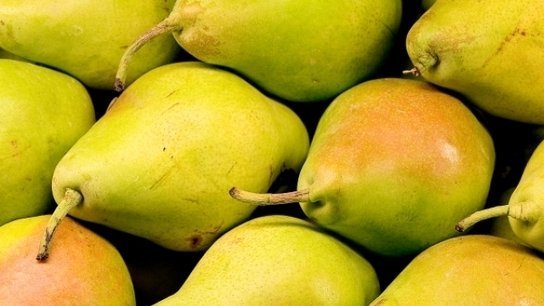Mango is no longer a forbidden fruit for diabetics

In past, nutritionists have debated inclusion of mango in diet for diabetics because researches stated that carbs present in it were mostly simple sugars that got readily absorbed in bloodstream vis-a-vis complex carbohydrates. Studies also stated that 30 per cent of sugar in mango is fruit sugar fructose which is metabolized in liver and is seen to raise one’s triglyceride levels. Both these facts (now with a solution) made the mango disappear from the plate of diabetics.
14 Simple Ways to Stick to a Healthy Diet

Eating healthy can help you lose weight and have more energy. It can also improve your mood and reduce your risk of disease. Yet despite all these benefits, maintaining a healthy diet and lifestyle can be difficult. Eating a nutritious diet has many benefits, including potential weight loss.
The best way to a healthy diet? Eat 3 balanced meals, don’t cut any food group

Adding ‘exercise’ labels on packaging won’t solve the obesity problem. Instead, stick to a simple message: eat three balanced meals a day
Ultra-processed foods and added sugars in the US diet: evidence from a nationally representative cross-sectional study

Ultra-processed foods comprised 57.9% of energy intake, and contributed 89.7% of the energy intake from added sugars. The content of added sugars in ultra-processed foods (21.1% of calories) was eightfold higher than in processed foods (2.4%) and fivefold higher than in unprocessed or minimally processed foods and processed culinary ingredients grouped together (3.7%). Both in unadjusted and adjusted models, each increase of 5 percentage points in proportional energy intake from ultra-processed foods increased the proportional energy intake from added sugars by 1 percentage point.
This ‘Healthy’ Food Swap You’ve Been Making May Actually Be Bad For You

Actually, when consumed in moderation, butter is actually pretty good for you. Research found butter fights cancer, reduces diabetes symptoms, is packed with vitamins that boost your immune system and keeps bones strong and teeth healthy. So, before you dump all your vegetable oil down the drain, let’s take a look at the research.
Study finds eating pears regularly may improve blood pressure, heart function | Latest News & Updates at Daily News & Analysis

Eating fresh pears may improve blood pressure and vascular function in middle-aged men and women who are at risk of developing cardiovascular diseases and type 2 diabetes, according to a new study. “These initial results are very promising,” said lead author Sarah A Johnson, who conducted the research while at Florida State University. “With metabolic syndrome being of such high prevalence in the US, we feel it is important to explore the potential for functional foods such as pears to improve cardiovascular risk factors such as blood pressure in affected middle-aged adults,” Johson said, who is now at from the Colorado State University.
NHS England » Prevention is key to the fight against heart disease – Dr Matt Kearney

The newly appointed National Clinical Director for Cardiovascular Disease Prevention looks at the challenges ahead: There is now growing acceptance across the NHS that we have to get serious about prevention. Much of this, of course, is driven by the epidemic of obesity, poor diet, inactivity and other risk factors that come with the 21st century lifestyle. It is estimated that around two thirds of premature deaths – that is deaths before the age of 75 – could be prevented by tackling the major risk factors. And one in four premature deaths is caused by cardiovascular disease (CVD), especially heart attacks and strokes.
Shared risk factors lead to diabetes, heart disease and cancer, says major AACR symposium

In a major symposium at the American Association for Cancer Research (AACR) Annual Meeting 2015, University of Colorado Cancer Center investigator Tim Byers, MD, MPH, describes research showing the link between cancer, diabetes and cardiovascular disease. “Understanding the similarities and differences in how these risk factors create cancer, diabetes and cardiovascular disease could aid the ways we prevent all three diseases,” Byers says.
Why reduced-fat foods are making you fat

A whopping 65 percent of people want to reduce the amount of fat in their diets, according to a recent Nielson survey, despite overwhelming research that shows low-fat diets may actually promote weight gain. So how has this monster of myth lived for so long? Because people still think fat makes them fat, says Donald K. Layman, Ph.D., professor emeritus of food science and human nutrition at the University of Illinois. And because the government’s new Dietary Guidelines for Americans still tell them to cut down on fat intake, particularly saturated fat. Read more here: au.lifestyle.yahoo.com
How long does it take to burn off YOUR favourite junk food? Instructive infographics

An infographic reveals the amount of exercise required to work off fast food including KFC, McDonald’s and a Pizza Express Margherita pizza – and women have to work out longer than men.



